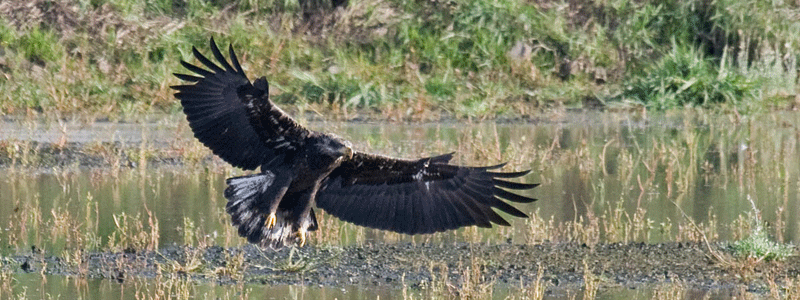
Conservation credits include species credits as well as non-wetland habitat credits in states such as California, Texas and Florida. Conservation credits help achieve no net loss for rare biodiversity resources listed under state and federal Endangered Species Acts. When human activities impact biodiversity resources, purchase of conservation credits helps protect, enhance, restore or sometimes create habitat supporting the impacted species in similar nearby ecosystems.
Species credits, also called ‘Endangered Species Recovery Credits’, are described as ‘conservation credits that can be used at a later time to offset negative impacts’ of agency-approved actions. U.S. Fish & Wildlife Service implements this program under the Endangered Species Act as ‘a net benefit to the conservation of federally protected species (offering) incentives for federal agencies to reach out to private landowners and conserve imperiled wildlife.’
Examples of species and habitat credits include:
For California —
| Alameda whipsnake | Alluvial fan scrub |
| Bald eagle | Alluvial floodplain |
| Blunt-nosed leopard lizard | CA tiger salamander habitat |
| Burke’s goldfields | Chaparral |
| Burrowing owl | Coastal live oak woodland |
| Butte County meadow foam | Coastal sage scrub |
| California gnatcatcher | Englemann oak woodland |
| California red legged frog | Floodplain riparian habitat |
| California tiger salamander | Great basin scrub |
| Chinook calmon | Monterrey County sandhills |
| Delhi sands flower-loving fly | Native grassland |
| Delta smelt | Non-native grassland |
| Desert tortoise | Open water |
| Giant garter snake | Riparian habitat |
| Giant kangaroo rat | Scalebroom scrub |
| Holly leaf cherry | Scrub-shrub |
| Lahontan cutthroat trout | Shaded riverine |
| Least Bell’s vireo | Vernal pool |
| Mohave ground squirrel | Water-dependent habitat |
| Salmonids | |
| San Francisco garter snake | |
| San Joaquin kit fox | |
| Sebastapol meadowfoam | |
| Sonoma sunshine | |
| Steelhead | |
| Swainson’s hawk | |
| Valley elderberry longhorn beetle | |
| Vernal pool fairy shrimp |
For Florida —
| Florida panther | Panther habitat |
| Giant gopher tortoise | Gopher tortoise habitat |
| Wood stork | Wood stork habitat |
For Texas —
| Black-capped vireo |
| Bone Cave harnestman |
| Coffin Cave mold beetle |
| Golden cheek warbler |